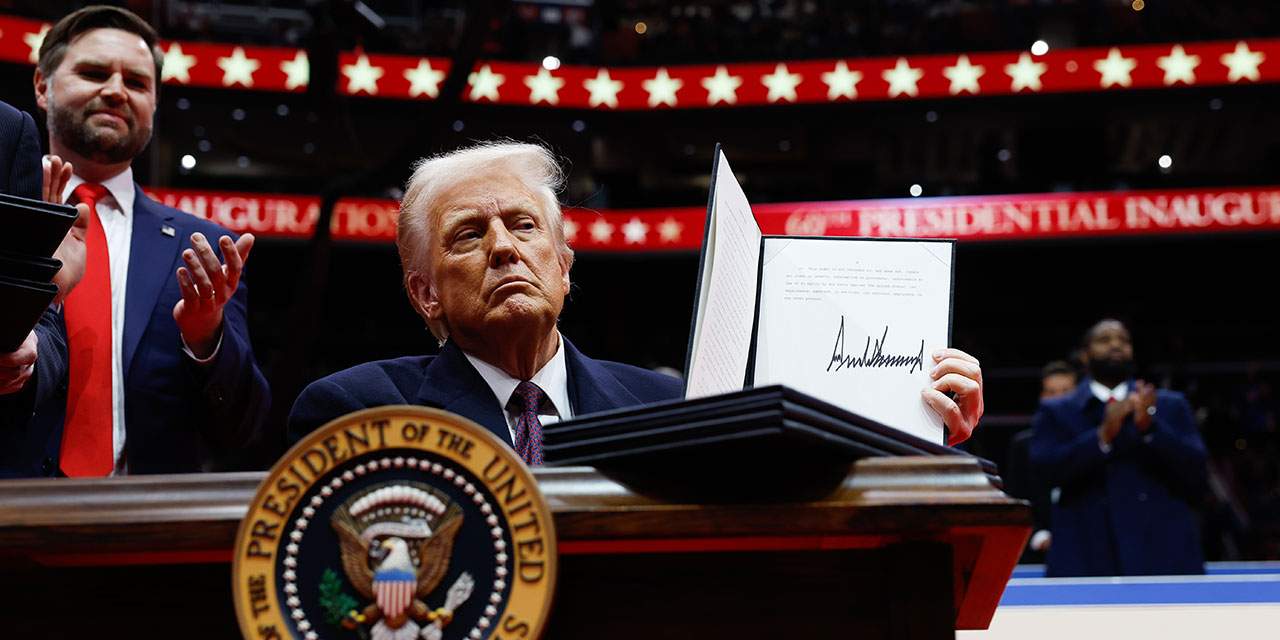|
Forwarded this email? Sign up for free to have it sent directly to your inbox. |
|
|
Dear Friend, We at City Journal pride ourselves on our attachment to timeless and unyielding truths. But we also recognize that the world changes—sometimes, even for the better. This is certainly the case when it comes to e-mail newsletters. These dispatches have become an essential source of news and commentary for millions of consumers; for writers and publications, they are a valuable way to build relationships with, and communities among, readers.
With that in mind, we have been working on making City Journal’s daily newsletter a lively way to engage with our ongoing efforts. Today’s installment is the first in our new format, where we’ll aim to provide additional context around our articles; highlight research, journalism, and events of interest; and provide more opportunities for readers to interact directly with City Journal.
This is a work in progress, and your feedback would be extremely helpful. Please email us at editors@city-journal.org with questions and comments. We hope you’ll enjoy this new offering, and look forward to continuing to enhance the City Journal experience. Yours gratefully,
Brian C. Anderson
Editor |
|
|
Today, we’re looking at President Donald Trump’s second inauguration and executive orders, how *really* to cut spending in D.C., what went wrong for Democrats in the 2024 election, why Americans are feeling so glum about the economy, and The Great Gatsby’s centennial. |
|
|
President Trump wasted zero time on his first day back at the Oval Office, issuing a flurry of executive orders on everything from immigration to the federal workforce—and signing many of them on-stage at an inauguration rally, in classic Trump fashion. There’s one order that we should all be excited about, argues Manhattan Institute Senior Fellow Christopher Rufo: the abolition of the diversity, equity, and inclusion (DEI) bureaucracy in the federal government.
“Following the death of George Floyd, left-wing race activists made a blitz through America’s institutions, rewriting school curricula, altering government policy, and establishing DEI offices in major universities, big-city school districts, and Fortune 100 companies,” he notes. And eventually former President Biden followed suit, doing whatever he could to entrench it within his administration.
That ends with Trump’s order—and not a moment too soon, says Rufo. The order represents the culmination of the campaign that Rufo has waged, in our pages and elsewhere, to defeat DEI and replace it with colorblind meritocracy. |
|
|
| The two-year campaign for colorblind equality just notched its biggest win yet. |
|
|
President Trump may have some success at slashing government spending, but he’ll need to rely on more than just personality to see his vision through. That’s thanks to the deeply rooted pressure to overspend on Capitol Hill.
“What’s needed is to revive the Constitution’s crucial barriers against fiscal irresponsibility—primarily by persuading the Supreme Court to back down from wayward doctrines that invite misspending and worse,” argues Philip Hamburger, the Maurice & Hilda Friedman Professor of Law at Columbia Law School and 2016 Hayek Book Prize winner.
In his latest piece for City Journal, Hamburger explains how it all might play out. |
|
|
Put Elon Musk, Jeff Bezos, and Mark Zuckerberg in a room and what do you get? A second Trump inauguration, evidently. They were just a handful of the many tech leaders who sat behind President Trump as he delivered his Inaugural Address on Monday—a sign of a new political era.
“While digital tycoons were mostly unified in opposition to Trump and populism in 2017, the frustrations of the Biden years and the excesses of the progressive cultural war have caused many tech figures to see in Trumpian populism a chance to reset the political conversation and slash red tape,” Fred Bauer writes. |
Related: In an investigative report, Manhattan Institute Senior Fellow Christopher Rufo and reporter Hannah Grossman uncovered the network of leftist activists and militants who were preparing for battle ahead of Trump's inauguration—and will doubtless seek to disrupt his second term. Read it here. |
|
|
In our winter issue, former CIA analyst Martin Gurri argues that the 2024 election shattered the Democratic Party, which will have to relearn the difference between hope and fact. You can read him here. |
|
|
By many measures, the U.S. economy is strong, with some 256,000 employees added to payrolls in December. And yet, Americans still feel financially strapped. That’s clear in the data, which suggest that many are working more than one job just to make ends meet, writes Vested chief economist Milton Ezrati. He digs into the numbers here. |
|
|
To mark the centennial of The Great Gatsby, Johnathan Clarke, a City Journal contributing editor, explores how the classic novel stands out in its ability to capture our sense of who we are as a people. Read his piece here. |
|
|
A quarterly magazine of urban affairs, published by the Manhattan Institute, edited by Brian C. Anderson. |
|
|
Copyright © 2025 Manhattan Institute, All rights reserved. |
|
|
|




